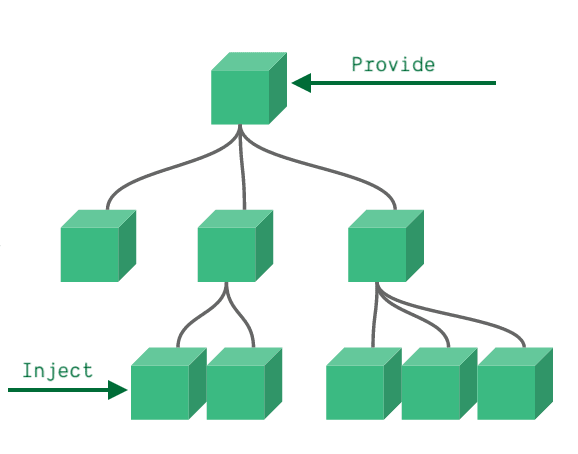You Might Not Need Vuex with Vue 3
Vuex is an awesome state management library. It's simple and integrates well with Vue. Why would anyone leave Vuex? The reason can be that the upcoming Vue 3 release exposes the underlying reactivity system and introduces new ways of how you can structure your application. The new reactivity system is so powerful that it can be used for centralized state management.
Do You need a shared state?
There are circumstances when data flow between multiple components becomes so hard that you need centralized state management. These circumstances include:
- Multiple components that use the same data
- Multiple roots with data access
- Deep nesting of components
If none of the above cases are true, the answer is easy, whether you need it or not. You don't need it.
But what about if you have one of these cases? The straightforward answer would be to use Vuex. It's a battle-tested solution and does a decent job.
But what if you don't want to add another dependency or find the setup overly complicated? The new Vue 3 version, together with the Composition API can solve these problems with its built-in methods.
The new solution
A shared state must fit two criteria:
- reactivity: when the state changes, the components using them should update also
- availability: the state can be accessed in any of the components
Reactivity
Vue 3 exposes its reactivity system through numerous functions. You can create a reactive variable with the reactive function (an alternative would be the ref function).
import { reactive } from 'vue';
export const state = reactive({ counter: 0 });
The object returned from the reactive function is a Proxy object that can track changes on its properties. When used in a component's template, the component re-renders itself whenever the reactive value changes.
<template>
<div>{{ state.counter }}</div>
<button type="button" @click="state.counter++">Increment</button>
</template>
<script>
import { reactive } from 'vue';
export default {
setup() {
const state = reactive({ counter: 0 });
return { state };
}
};
</script>
Availability
The above example is excellent for a single component, but other components can't access the state. To overcome this, you can make any value available inside a Vue 3 application with the provide and inject methods.
import { reactive, provide, inject } from 'vue';
export const stateSymbol = Symbol('state');
export const createState = () => reactive({ counter: 0 });
export const useState = () => inject(stateSymbol);
export const provideState = () => provide(
stateSymbol,
createState()
);
When you pass a Symbol as key and a value to the provide method, that value will be available for any child component through the inject method. The key is using the same Symbol name when providing and retrieving the value.
This way, if you provide the value on the uppermost component, it'll be available in all the components. Alternatively, you can also call provide on the main application instance.
import { createApp, reactive } from 'vue';
import App from './App.vue';
import { stateSymbol, createState } from './store';
const app = createApp(App);
app.provide(stateSymbol, createState());
app.mount('#app');
<script>
import { useState } from './state';
export default {
setup() {
return { state: useState() };
}
};
</script>
Making it robust
The above solution works but has a drawback: you don't know who modifies what. The state can be changed directly, and there is no restriction.
You can make your state protected by wrapping it with the readonly function. It covers the passed variable in a Proxy object that prevents any modification (emits a warning when you try it). The mutations can be handled by separate functions that have access to the writable store.
import { reactive, readonly } from 'vue';
export const createStore = () => {
const state = reactive({ counter: 0 });
const increment = () => state.counter++;
return { increment, state: readonly(state) };
}
The outside world will have access only to a readonly state, and only the exported functions can modify the writable state.
By protecting the state from unwanted modifications, the new solution is relatively close to Vuex.
Summary
By using the reactivity system and the dependency injection mechanism of Vue 3, we've gone from a local state to centralized state management that can replace Vuex in smaller applications.
We have a state object that is readonly and is reactive to changes in templates. The state can only be modified through specific methods like actions/mutations in Vuex. You can define additional getters with the computed function.
Vuex has more features like module handling, but sometimes we don't need that.
If You want to have a look at Vue 3 and try out this state management approach, take a look at my Vue 3 playground.

